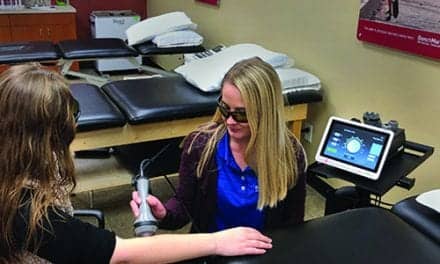During a new national survey of rheumatoid arthritis (RA) patients, Health Union reports that it found a severe impact on quality of life, employment, and the ability to afford treatment.
According to a news release issued by Health Union, 94% of respondents with RA stated that they could not do as much as they were able before acquiring the disease. Additionally, 67% noted that they do not understand the severity of their symptoms. The results suggest the top life-altering symptoms include pain, fatigue, and physical limitations.
Andrew Lumpe, PhD, a patient with RA and a regular contributor to RheumatoidArthritis.net, explains in the release that many individuals are not aware that RA is a progressive, autoimmune disease, rather than the result of aging and wear on the body, such as osteoarthritis.
“Treatment can help slow damage, but rheumatoid arthritis frequently alters the lives of both patients and their families,” Lumpe notes.
The release reports that 37% of survey responders reported they are working full time. A total of 78% of RA patients working full time stated that their work has been impacted by the illness, with top concerns being fatigue at 92%, pain at 84%, and physical limitations at 50%.
The release adds that these were also the same top three reasons used for individuals with RA cutting back on work hours or having to stop working altogether.
In the survey, respondents also reported requiring help with daily activities, such as cleaning (75%) and other household duties (52%). Additionally, 41% reported having a caregiver actively involved in managing their RA, typically a spouse, the release says.
New treatments however, the release states, offer hope for improved quality of life. About half the RA survey respondents reported satisfaction with their treatments and only 21% voiced dissatisfaction. Respondents who were on biologics, a newer type of medication, had a slightly higher satisfaction rate, the release notes.
Most treatments were rated with above average efficacy and are generally tolerated by the respondents. The release states that of those respondents who have had their RA go into remission, 74% report remission occurring after treatment with medication.
Yet, a total of 38% of respondents have avoided medications as a result of cost. Also, 30% have spent at least $2,000 on RA treatments during the last year, survey results say. There are manufacturer-sponsored financial assistance programs for medication, the release says (of which 41% of respondents participate). The majority of participants (87%) report being satisfied, yet the primary reason behind non-participation in these programs is lack of awareness.
Mariah Leach, an RA patient and contributor to RheumatoidArthritis.net, notes in the release that affordability of effective RA treatments is a serious concern.
“When you consider the burden this disease places on patients in terms of quality of life and employment, it is clear that supporting these individuals with treatment options can yield many benefits,” Leach says.
Tim Armand, president and co-founder of Health Union, explains that, “Surveys like RA In America can help us better understand the challenges and how to meet the needs of people living with serious chronic conditions. Healthcare providers and caregivers can adjust treatment and supports with a more vivid picture of the patient experience.”
The release says the RA In America survey was conducted online in the fall of 2014 with 3,561 respondents who were diagnosed with rheumatoid arthritis and a resident of the US or US citizen living abroad.
[Source(s): EurekAlert, Health Union LLC, RheumatoidArthritis.net]




